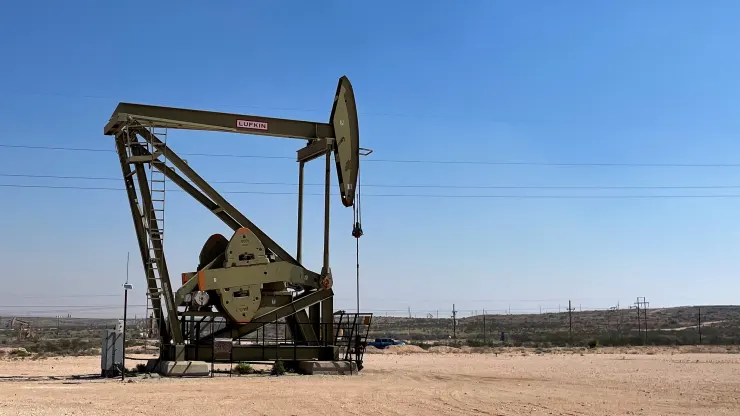U.S. crude oil is hovering above $79 a barrel after selling off Wednesday on surging inventories.
While economic hopes are fading, the current outlook all but ensures OPEC+ will not roll back its production cuts at the next meeting on June 1, said analyst Tamas Varga.
U.S. crude oil edged higher on Thursday after selling off to a seven-week low on a surge in petroleum inventories on softening demand.
Here are today’s energy prices:
West Texas Intermediate
June contract: $79.40 a barrel, up 39 cents, or 0.49%. Year to date, U.S. crude oil is 10.8%.
Brent
July contract: $83.96 a barrel, up 52 cents, or 0.62%. Year to date, the global benchmark is up 9%.
RBOB
June: $2.59 a gallon, up 0.57%. Year to date, gasoline is up 23%.
Natural Gas
June contract: $1.96 per thousand cubic feet, up 1.40%. Year to date, gas is down 22%.
Oil prices tumbled more than 3% on Wednesday after U.S. commercial crude inventories, which exclude the strategic petroleum reserves, surged by 7.3 million barrels to 461 million barrels total last week.
Those are the highest inventory levels since June 2023, said Bob Yawger, director of energy futures at Mizuho Americas. The rate at which refiners process crude and the average demand for gasoline is lower than the year-ago period despite summer driving season rapidly approaching.
“On the economic front hopes are fading,” wrote Tamas Varga, analyst at oil broker PVM, in a Thursday note. The Federal Reserve held interest rates steady on Wednesday, citing a “lack of further progress” in bringing inflation down to its 2% target.
A stronger dollar on the Federal Reserve keeping interest rates higher for longer could also make oil more expensive for customers, putting pressure on demand, according to Varga.
The current outlook all but ensures OPEC+ will not roll back its production cuts at the next meeting on June 1, Varga said.
“For this reason and unless the Fed pulls out the ‘rate increase’ rabbit of its hat further and significant downside potential appears confined,” he said.

